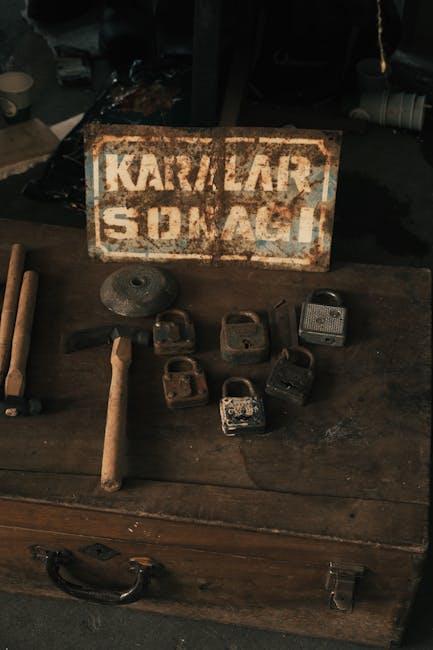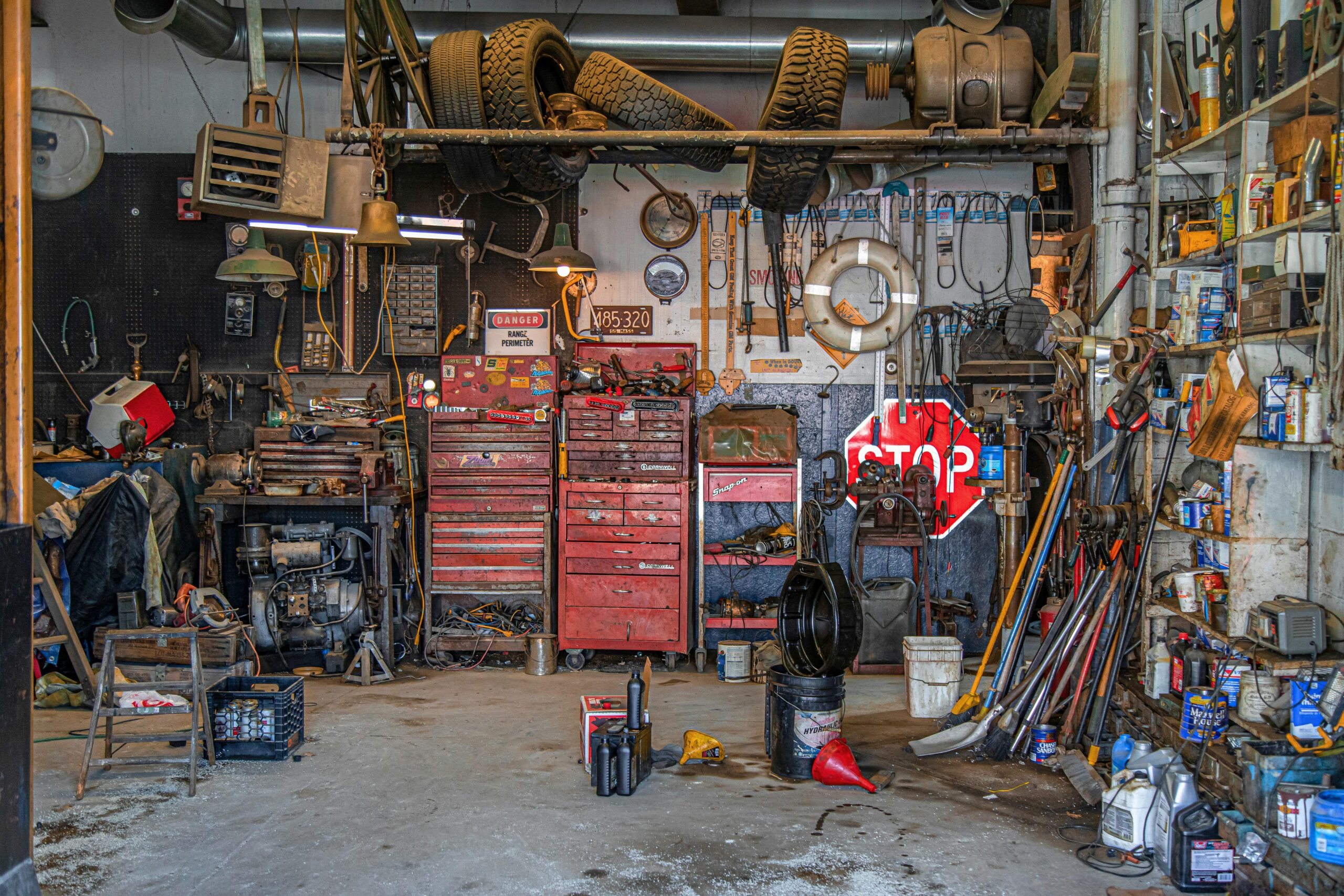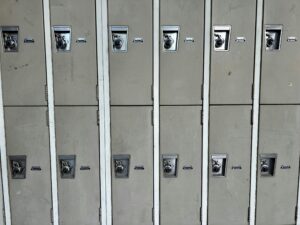Behind every garage door lies a world of security, convenience, and peace of mind. But when the lock breaks, that sense of safety suddenly feels fragile. Faced with a malfunctioning garage lock, many homeowners find themselves at a crossroads: is it wiser to repair what’s broken, or to replace the entire mechanism altogether? Both choices carry their own set of costs, risks, and benefits. In this article, we’ll explore the key factors that can help you decide the best path forward-so you can get back to feeling secure without unnecessary expense or hassle.
Table of Contents
- Evaluating the Severity of Your Garage Lock Damage
- Understanding the Cost Differences Between Repair and Replacement
- Weighing Security Risks and Benefits for Peace of Mind
- Exploring DIY Fixes Versus Professional Services
- Making the Final Decision Based on Longevity and Convenience
- Q&A
- The Conclusion

Evaluating the Severity of Your Garage Lock Damage
Assessing the condition of your garage lock is crucial before deciding whether to repair or replace it. Begin by closely inspecting the lock’s physical state-look for signs such as rust, bent components, or a misaligned latch. Pay attention to the lock’s functionality: does the key turn smoothly, or does it get stuck? If the damage is superficial, like minor scratches or slight stiffness, a repair might be sufficient. However, if the mechanism jams frequently or the lock shows clear structural damage, replacement could be the safer and more cost-effective solution in the long run.
Another helpful way to evaluate your lock’s damage is by comparing the symptoms and potential costs. The following table offers a quick guide to common issues and suggested actions:
| Damage Symptom | Repair Feasibility | Recommended Action |
|---|---|---|
| Smooth key operation, minor wear | High | Repair |
| Key sticks or breaks in lock | Low to Moderate | Consider Repair or Replace |
| Rust or corrosion on lock body | Low | Replace |
| Bent or broken latch mechanism | Low | Replace |
Remember, if you encounter issues that compromise security or if the lock shows signs of internal failure, prioritizing replacement will better protect your home and provide peace of mind.

Understanding the Cost Differences Between Repair and Replacement
When deciding between fixing your broken garage lock or opting for a fresh replacement, cost plays a pivotal role. Repairs tend to have a lower upfront expense, especially if the damage is minor-think loose screws, worn-out bolts, or sticky tumblers. However, their lifespan post-fix might be significantly shorter, which could lead to frequent repair costs stacking up over time. On the other hand, replacement locks are often more costly initially but come with benefits like improved security features and warranties that protect your investment for years.
To break things down, it helps to compare typical expenses:
| Option | Average Cost Range | Longevity | Additional Benefits |
|---|---|---|---|
| Repair | $50 – $150 | 1-3 years | Quick fix, less waste |
| Replacement | $120 – $400 | 5-10 years | Enhanced security, warranty |
Key considerations to keep in mind include:
- Frequency of past repairs: Multiple fixes in a short period hint at replacement.
- Security needs: Upgrading locks could provide peace of mind.
- Budget constraints: Immediate vs. long-term affordability.

Weighing Security Risks and Benefits for Peace of Mind
When deciding between repairing or replacing a broken garage lock, it’s vital to consider the overall impact on your home’s security. A lock that’s patched up might seem cost-effective at first, but if it lacks modern security features, you could be leaving a vulnerable entry point open for intruders. On the other hand, investing in a new lock often brings updated technology such as pick-resistant mechanisms, smart connectivity, or reinforced materials that enhance your protection against break-ins. Balancing these factors means thinking beyond just the immediate cost and focusing on the long-term peace of mind.
Key considerations to weigh include:
- Security level: How resistant is the lock to picking, bumping, or forced entry?
- Repair cost vs. replacement cost: Sometimes repairs approach the expense of new locks without the benefits.
- Longevity: Will the fix hold up, or is it a temporary patch?
- Technological advancements: Are you missing out on smart features that enhance control?
| Factor | Repair | Replacement |
|---|---|---|
| Cost | Lower upfront | Higher upfront |
| Security | Depends on damage | Typically enhanced |
| Durability | May be temporary | Long-term solution |
| Tech Features | Limited | Advanced options |

Exploring DIY Fixes Versus Professional Services
When it comes to fixing a broken garage lock, opting for a DIY repair can seem like an attractive and budget-friendly option. Many homeowners enjoy the satisfaction of tackling minor lock issues using basic tools and tutorials found online. However, DIY fixes often come with hidden risks, such as unintentionally damaging the lock further or missing a more complex underlying problem that can compromise security. Moreover, not all locks are created equal-some high-security or electronic models require specialized knowledge and equipment to service properly. Before diving into a repair, weigh these factors carefully, especially if you lack experience or the right tools.
On the flip side, professional locksmith services bring expertise, efficiency, and peace of mind. These experts can quickly diagnose whether a lock is salvageable or inevitably needs replacement. Hiring a pro usually comes with a warranty or guarantee, ensuring protection long after the job is done. Here’s a quick rundown of pros and cons to consider:
- DIY Fixes: Cost-effective, immediate, but riskier without proper skill.
- Professional Services: Reliable, time-saving, safer for complex locks, but at a higher price.
| Factor | DIY Fix | Professional Service |
|---|---|---|
| Cost | Low (materials only) | Moderate to high |
| Time | Variable, depends on skill | Typically quick |
| Security | Potentially compromised | Enhanced and guaranteed |
| Tools Required | Basic or none | Professional-grade |

Making the Final Decision Based on Longevity and Convenience
When weighing your options, consider how long each choice will serve you without recurring issues. A repaired garage lock might suffice for now, but if it has underlying wear or damage, you could find yourself facing the same problem repeatedly. On the other hand, replacing the lock offers a fresh start with newer, often more secure technology that can provide peace of mind for years to come. Durability is key; investing in a quality replacement can mean less hassle and fewer emergency repairs down the road.
Convenience plays an equally important role in your decision. Repairing might seem quicker and less expensive upfront, but the time spent waiting for parts or skilled labor could disrupt your routine. Replacing the lock could involve a slightly higher initial cost but often comes with improved features such as easier rekeying or integration with smart home systems, making daily use simpler. Below is a quick comparison to help you visualize the trade-offs:
| Aspect | Repair | Replace |
|---|---|---|
| Longevity | Short to medium term | Long term |
| Upfront Cost | Lower | Higher |
| Convenience | May involve multiple visits | Usually done in one service call |
| Security Features | Limited to existing lock | Often upgraded technology |
Q&A
Q&A:
Q1: My garage lock is sticking and sometimes won’t turn. Should I repair it or replace it?
A1: If the lock is sticking due to dirt or minor wear, a good cleaning and lubrication might do the trick. However, if it’s becoming difficult to operate or frequently jams, that could indicate internal damage. In that case, replacement is often safer and more reliable than continual repairs.
Q2: Is it more cost-effective to repair a broken garage lock or to replace it entirely?
A2: Repairing a lock can be cheaper initially, especially if it’s a minor issue. But if your repairs become frequent or costly, replacing the lock could save money over time. Additionally, newer locks may offer better security features, providing more value for your investment.
Q3: How do I know if a garage lock is truly broken beyond repair?
A3: Signs include broken key insertion points, missing internal components, bent or snapped lock mechanisms, or persistent failure after multiple repair attempts. If your key breaks inside the lock or you can’t unlock the door at all, replacement is usually the best course.
Q4: Can repairing an old garage lock compromise home security?
A4: Yes. Older locks might not meet modern security standards, and patching up a damaged lock might leave vulnerabilities. A new lock with advanced security features can reduce the risk of break-ins and offer peace of mind.
Q5: If I decide to replace my garage lock, are there options that don’t require professional installation?
A5: Many modern garage lock kits are designed for DIY installation, complete with instructions and all necessary hardware. However, if your lock system is complex or integrated with an automated garage door, consulting a locksmith or professional is wise to ensure proper installation and security.
Q6: How important is it to choose the right type of lock when replacing my garage lock?
A6: Very important! Garage locks come in various styles-deadbolts, slide bolts, electronic locks, and more. Selecting a lock that suits your garage door type, security needs, and convenience preferences will maximize your garage’s protection and usability.
Q7: Could environmental factors affect whether I should repair or replace the garage lock?
A7: Absolutely. Locks exposed to harsh weather, moisture, or salt air may corrode quickly, making repairs short-lived. In such environments, opting for a weather-resistant replacement is often more practical and durable.
Navigating the decision between repairing or replacing a broken garage lock boils down to balancing cost, security, and convenience. When in doubt, consulting a trusted locksmith can provide tailored advice to keep your garage safe and functional.
The Conclusion
Ultimately, deciding whether to repair or replace a broken garage lock depends on a blend of practical considerations and personal preferences. While a quick fix might restore security in the short term, sometimes a brand-new lock offers peace of mind and enhanced protection that’s well worth the investment. By weighing factors like cost, durability, and how much you value convenience or advanced features, you can make a choice that best fits your needs. Whatever path you take, ensuring your garage remains a safe haven is the key takeaway-because a secure lock is more than just metal and mechanisms; it’s the silent guardian of what matters most.





